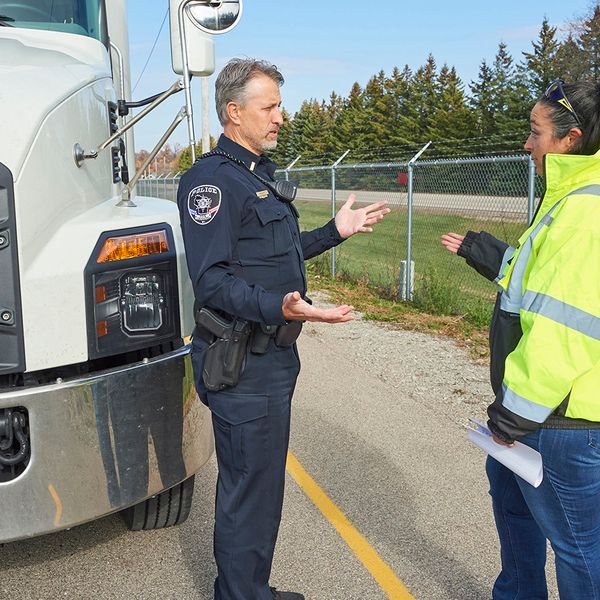USDOT issues roadside English language test
In response to a directive from the Trump administration, the U.S. Department of Transportation has issued a new enforcement policy aimed at ensuring commercial truck and bus drivers are able to read and speak English.
The internal policy, issued May 20, 2025, is now in effect. It includes guidance for how roadside enforcement personnel should enforce the English language proficiency requirements in 49 CFR 391.11(b)(2).
Two-part assessment
The policy advises officers to begin all roadside inspections in English. If it seems the driver may not understand the officer’s initial instructions, the officer is directed to conduct a two-part assessment to evaluate the driver’s compliance with the English language standard.
The first step is a driver interview, though details of the interview process were redacted from the public version of the policy. The policy says drivers should not use tools to facilitate communication during the interview, such as interpreters or smart-phone applications.
The policy directs officers to cite drivers for a violation if they cannot pass the interview portion of the assessment.
Step two in the assessment is evaluating whether the driver can recognize common highway traffic signs. The policy contains images of signs officers can use for this part of the test, but those too are redacted from the public version of the policy.
‘Out of service’ as of June 25
If a driver fails the test, the policy says the officer should:
- Cite the driver for a violation of 391.11(b)(2);
- Document evidence to support the violation, including the driver’s responses or lack thereof;
- Beginning June 25, place the driver out of service (June 25 is when the violation will be added to the North American Standard Out-of-Service Criteria, as previously announced by the Commercial Vehicle Safety Alliance); and
- When warranted, initiate an action to disqualify the driver from operating commercial motor vehicles in interstate commerce.
Drivers who are placed out of service won’t be allowed to drive until they can meet the English language requirements.
The policy applies to all federal enforcement personnel who perform inspections on drivers engaged in interstate commerce. Its effect on state-level enforcement remains unclear for now.
According to the policy, drivers in a commercial zone along the U.S.-Mexico border may be cited but should not be placed out of service.
The regulation
The Federal Motor Carrier Safety Regulations state that commercial drivers must be able to “read and speak the English language sufficiently to converse with the general public, to understand highway traffic signs and signals in the English language, to respond to official inquiries, and to make entries on reports and records.”
The new policy replaces a 2016 policy that ordered inspectors not to place drivers out of service for violating the language requirement.
























































